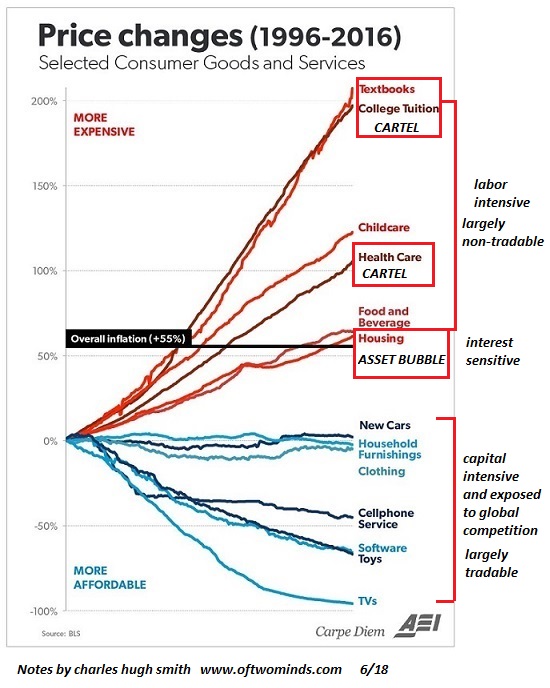I've marked up this chart of price changes to break out the three basic categories:
1. Labor-intensive sectors that are largely non-tradable (domestic) and dominated by cartels that can push their higher labor costs onto their customers.
2. Interest-sensitive sectors such as housing that jack up prices as cheap capital pushes valuations into bubble territory.
3. Tradable sectors exposed to global competition and capital-intensive technology such as robotics and automation.

What happens when capital is cheap, labor is costly and cartels dominate the labor-intensive non-tradable domestic sectors? Labor costs in the protected sectors soar, pushing prices higher throughout the economy, pushing employers to replace costly labor with cheap capital-intensive technology.
Employment expands in the Protected cartel-dominated sectors, and declines in every sector exposed to globalization, domestic competition and cheap capital. So assistant deans, hospital managers, top-tier bankers and under-secretaries of defense are doing just fine while the Unprotected are experiencing rising costs of living and stagnating wages and employment.
How's the economy doing? It depends on which class you're in. The Protected Class is doing just fine, the class with access to cheap credit and participation in asset bubbles has never had it so good, while the Unprotected Class faces a bleak future of lower real wages, rising costs of living and a social mobility ladder with few rungs left.